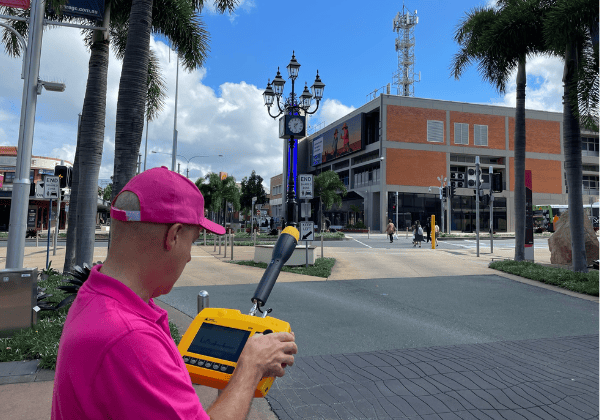New report a call to arms for industry, government to address emerging technologies gaps
Statements
Report recommendations could shape the future direction of Australia’s Information and Communications Technology (ICT) industry
Australia risks losing ground in the highly competitive global digital space unless government, industry and standards setters collaborate to address gaps in standards for emerging technologies, according to the authors of a critical new report.
Authored by Standards Australia, with input from international experts, the Data and Digital Standards Landscape report sets the direction and offers recommendations for Australia’s efforts in data and digital standardisation, now and in the future.
The report assessed, and provides key recommendations for, six key technology areas, including artificial intelligence (AI), data management, information security, the ‘internet of things’ (IoT), cloud computing and smart cities.
Key findings and recommendations from the report include:
- Industry, government, and Standards Australia must partner with each other to fill strategic gaps in standards for critical and emerging technologies and to influence international standards development, or risk losing ground to competitors in the highly competitive global technology landscape.
- Government, the ICT community, and Standards Australia must work together to guide the uptake of data and digital standards, and support business in implementing them.
- Industry, regulators, and policymakers could benefit from implementing international data and digital standards and should do so to promote international interoperability.
Dr Ian Oppermann, NSW Chief Data Scientist and JTC1 National Committee Chair said: “If Australia fails to address the recommendations outlined in the report, there is the potential to fall behind in the global development of standards for critical and emerging technologies.”
"Australia's future prosperity depends on staying at the forefront of new technologies that boost productivity and support emerging industries, enable Australian businesses to compete on a global scale and allow Australians to benefit from emerging technologies securely."
"Standards Australia has identified that up to 4000 new standards will be required over the next decade to keep pace with the transformation of the global economy, and many of these will be in the data and digital space."
"Importantly, the Data and Digital Standards Landscape report identifies key data and digital standards developed in the last five years, as well as gaps in standardisation and opportunities for Australia to participate in how standards are set internationally. The document is a must read for policymakers and for businesses that use ICT systems or products, as the standards listed can underpin regulatory and policy frameworks for technologies and can also help businesses to meet the complex challenges faced in the ICT sector.”
“Ultimately, increasing the use of these standards and Australia’s role in their development will support access to markets for Australian developed technologies, products and services, and will enhance the use of technologies in Australia in a safe and appropriate way,” he concluded.
Standards Australia CEO Adrian O’Connell said: “This report is a call to arms, encouraging Australian government and business to participate in the development of international standards to ensure best practice and harness the potential of critical and emerging technologies, while addressing the risks that come with this profound technological change.”
“Critically, the Data and Digital Standards Landscape report sets the direction for Australia’s efforts in data and digital standardisation now and into the future.”
View the Data and Digital Landscape Document here.

Report recommendations could shape the future direction of Australia’s Information and Communications Technology (ICT) industry
Australia risks losing ground in the highly competitive global digital space unless government, industry and standards setters collaborate to address gaps in standards for emerging technologies, according to the authors of a critical new report.
Authored by Standards Australia, with input from international experts, the Data and Digital Standards Landscape report sets the direction and offers recommendations for Australia’s efforts in data and digital standardisation, now and in the future.
The report assessed, and provides key recommendations for, six key technology areas, including artificial intelligence (AI), data management, information security, the ‘internet of things’ (IoT), cloud computing and smart cities.
Key findings and recommendations from the report include:
- Industry, government, and Standards Australia must partner with each other to fill strategic gaps in standards for critical and emerging technologies and to influence international standards development, or risk losing ground to competitors in the highly competitive global technology landscape.
- Government, the ICT community, and Standards Australia must work together to guide the uptake of data and digital standards, and support business in implementing them.
- Industry, regulators, and policymakers could benefit from implementing international data and digital standards and should do so to promote international interoperability.
Dr Ian Oppermann, NSW Chief Data Scientist and JTC1 National Committee Chair said: “If Australia fails to address the recommendations outlined in the report, there is the potential to fall behind in the global development of standards for critical and emerging technologies.”
"Australia's future prosperity depends on staying at the forefront of new technologies that boost productivity and support emerging industries, enable Australian businesses to compete on a global scale and allow Australians to benefit from emerging technologies securely."
"Standards Australia has identified that up to 4000 new standards will be required over the next decade to keep pace with the transformation of the global economy, and many of these will be in the data and digital space."
"Importantly, the Data and Digital Standards Landscape report identifies key data and digital standards developed in the last five years, as well as gaps in standardisation and opportunities for Australia to participate in how standards are set internationally. The document is a must read for policymakers and for businesses that use ICT systems or products, as the standards listed can underpin regulatory and policy frameworks for technologies and can also help businesses to meet the complex challenges faced in the ICT sector.”
“Ultimately, increasing the use of these standards and Australia’s role in their development will support access to markets for Australian developed technologies, products and services, and will enhance the use of technologies in Australia in a safe and appropriate way,” he concluded.
Standards Australia CEO Adrian O’Connell said: “This report is a call to arms, encouraging Australian government and business to participate in the development of international standards to ensure best practice and harness the potential of critical and emerging technologies, while addressing the risks that come with this profound technological change.”
“Critically, the Data and Digital Standards Landscape report sets the direction for Australia’s efforts in data and digital standardisation now and into the future.”
View the Data and Digital Landscape Document here.

Email:

Email:


